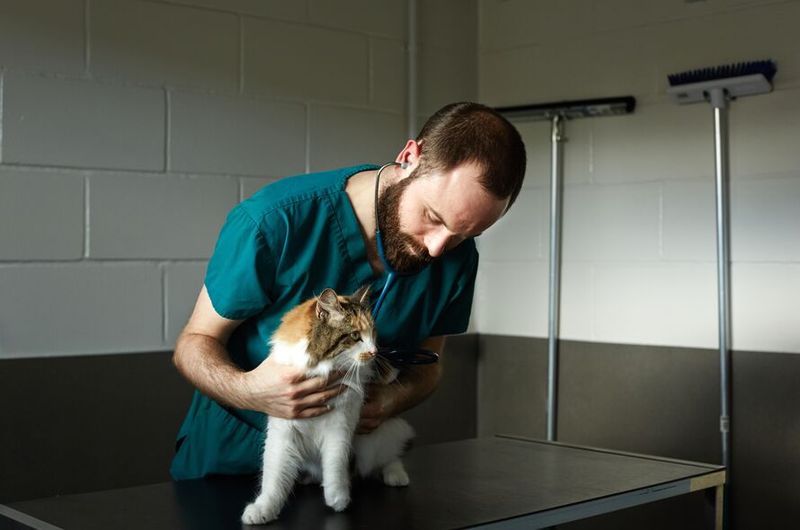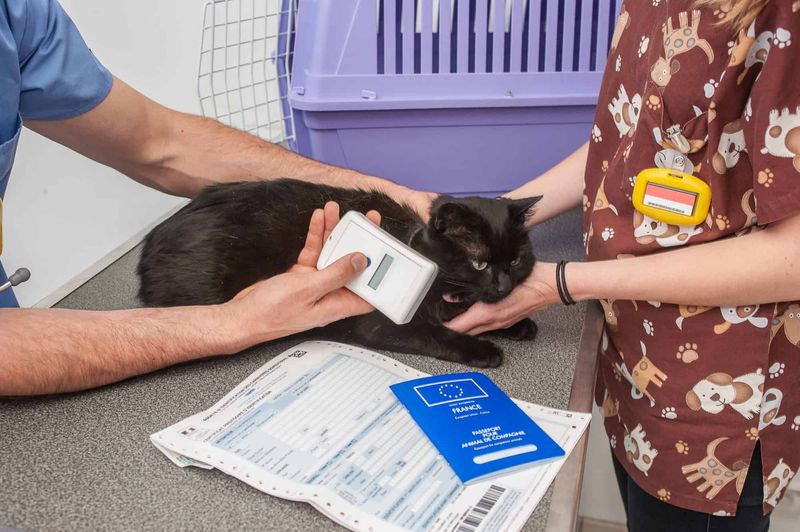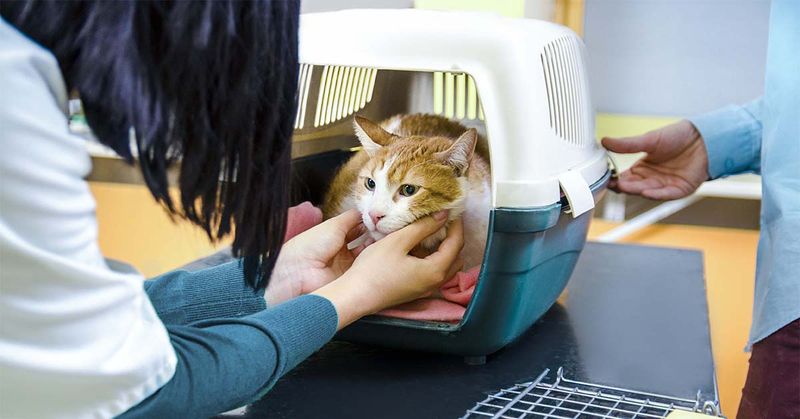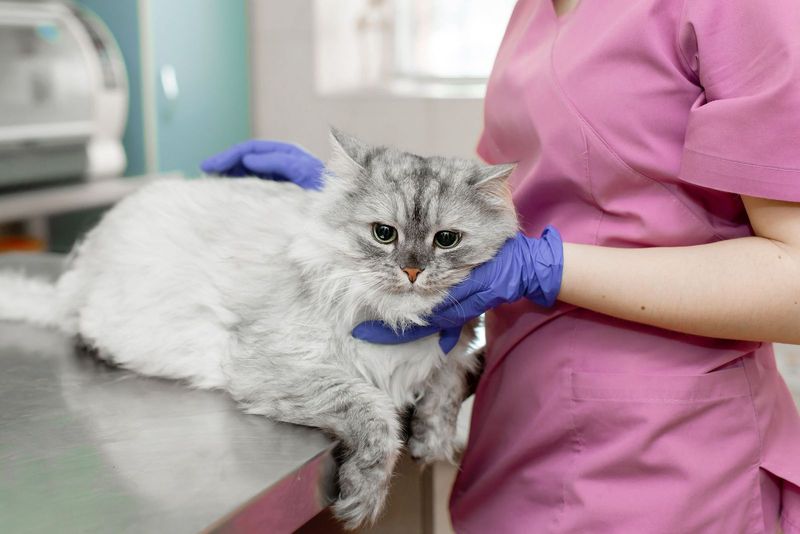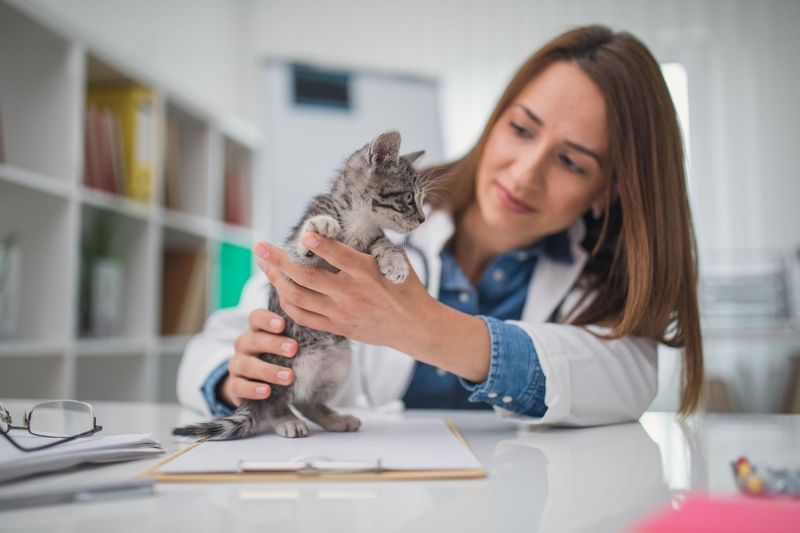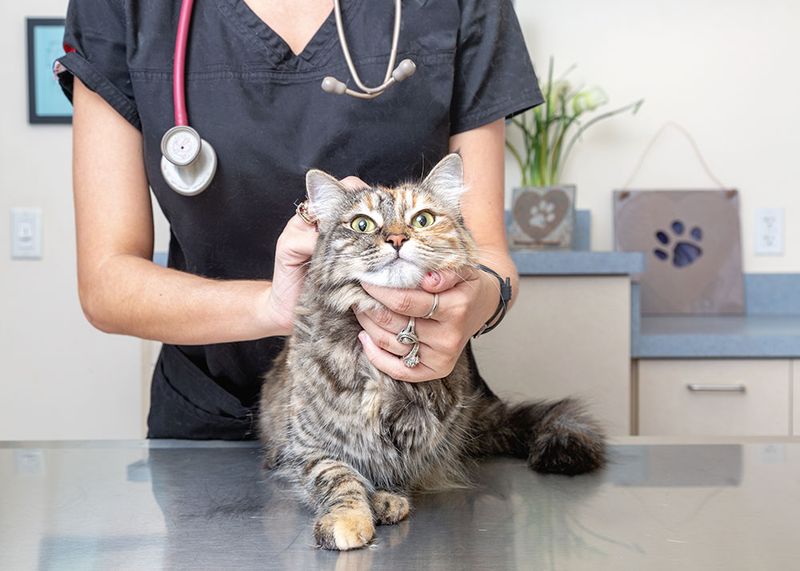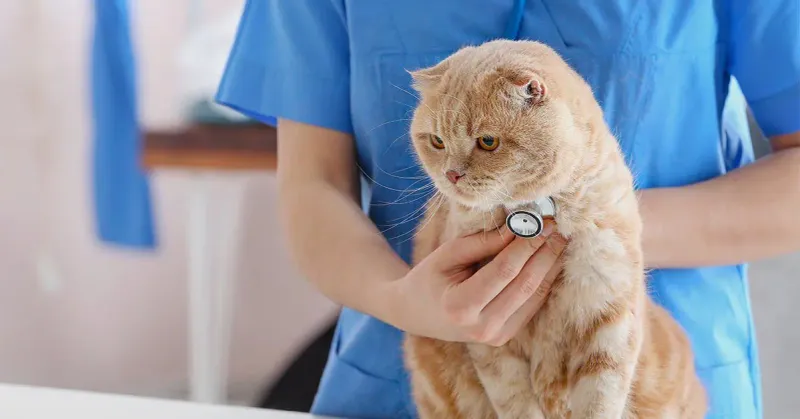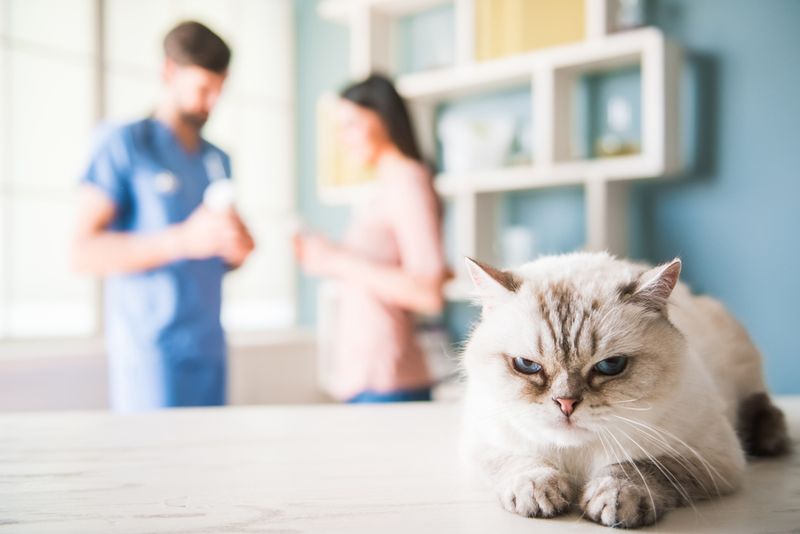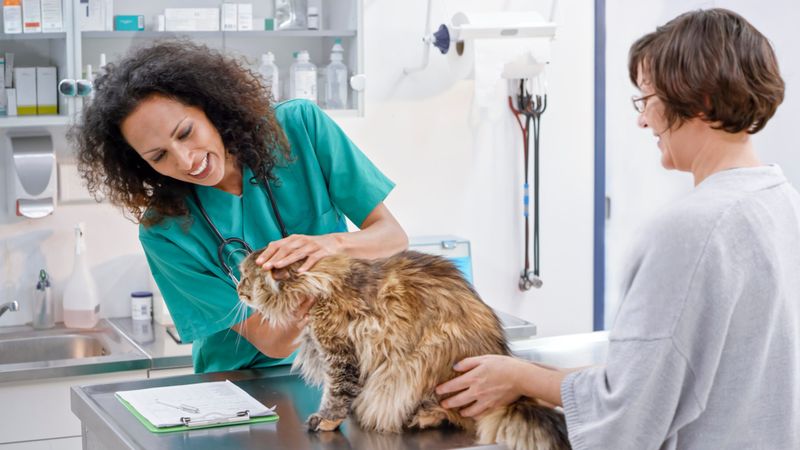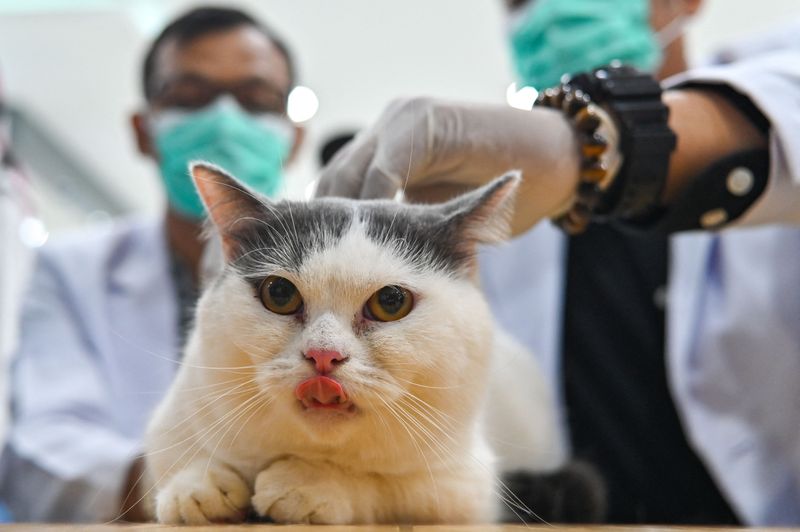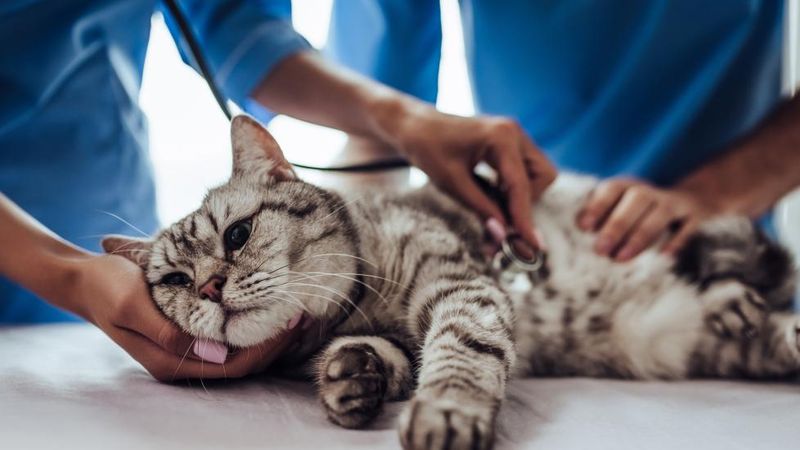📖 Table of Content:
- 1. They Don’t Seem Comfortable Handling Cats
- 2. They Don’t Offer Cat-Specific Advice
- 3. Your Cat Always Leaves More Stressed Than Necessary
- 4. They Rush Through Exams
- 5. They Discourage Questions or Concerns
- 6. They Don’t Explain Diagnoses or Treatments Clearly
- 7. You Always See a Different Vet or Technician
- 8. They Don’t Offer Preventative Care Plans
- 9. They Don’t Ask About Your Cat’s Behavior or Environment
- 10. Your Gut Says Something Feels Off
- 11. They Push Costly Treatments Without Options
- 12. Your Cat’s Health Isn’t Improving
As cat parents, we want nothing but the best for our feline companions. Whether it’s keeping up with routine check-ups or navigating unexpected health issues, having a veterinarian you trust is essential. But not all vets are equally experienced with or attuned to the unique needs of cats—and sometimes, it’s hard to tell when it’s time to make a change.
Cats are notoriously sensitive creatures. They often mask pain, stress easily, and have very specific physical and behavioral cues that can go unnoticed without a vet who understands feline health inside and out. A great vet will not only provide expert medical care but will also take the time to build trust with both you and your cat, creating a calm and supportive environment.
If you’ve been feeling uneasy after appointments or have concerns that keep piling up, it might be more than just a gut feeling. Below are 12 major signs that could mean it’s time to start looking for a better veterinarian—one who truly “gets” cats and can give your furry friend the compassionate, knowledgeable care they deserve.
1. They Don’t Seem Comfortable Handling Cats
You might not realize it at first, but… A vet who struggles to handle cats can unintentionally cause fear or even injury. Cats respond best to calm, confident, and feline-savvy hands. If your cat stiffens, hides, or lashes out every visit, poor handling may be the root cause. Experienced vets know how to approach cats slowly and respectfully. They’ll avoid sudden movements and loud noises, creating a more peaceful experience. Ask whether the clinic is ‘cat-friendly’ certified or has feline-specific protocols. Your cat’s stress level during visits is a good indicator of how skilled your vet is with cats. Don’t ignore the signs—your cat’s comfort and safety are at stake.
2. They Don’t Offer Cat-Specific Advice
It’s important to notice when your vet gives generic advice that could apply to any animal. Cats have very different nutritional, behavioral, and medical needs than dogs. A vet who doesn’t tailor guidance to your cat’s lifestyle or health risks may be overlooking key concerns. For example, feline-only diets, arthritis management, or even subtle signs of dental pain are often missed. You should feel like your vet understands how cats communicate and what they need at each life stage. If every answer sounds like a Google search result, that’s a red flag. Ask direct questions and see how specific their responses are. A knowledgeable vet will talk to you like your cat is the unique creature they are.
3. Your Cat Always Leaves More Stressed Than Necessary
Not every vet is trained to reduce feline stress—especially during visits. While some stress is unavoidable, your cat shouldn’t come home looking like they went through a warzone. A cat-savvy vet clinic will have quiet waiting areas, gentle handling techniques, and stress-reducing measures like Feliway diffusers. If your cat pants, hides for hours, or hisses uncontrollably after a visit, something’s wrong. These signs suggest the environment or handling is too intense or unfamiliar. Over time, this kind of repeated trauma can even make it harder to get your cat seen for future care. You deserve a vet who sees your cat’s emotional health as part of their overall well-being. Don’t settle for care that makes your cat fear it.
4. They Rush Through Exams
Here’s a subtle but serious issue—rushed appointments. If your vet barely glances at your cat, skips questions, or talks more to the screen than to you, they’re not giving your cat the attention they deserve. Cats often show only the subtlest signs of illness, so a thorough physical exam is essential. It takes time to notice early issues like weight changes, dental disease, or abnormal heart rhythms. Your vet should also be asking you about your cat’s behavior, diet, and litter box habits. If the whole appointment feels like a blur, there’s a good chance things are being missed. Quality care requires patience and observation. Don’t let your cat become an afterthought in a busy schedule.
5. They Discourage Questions or Concerns
Your instincts are more accurate than you think—and your questions matter. A great vet will never make you feel silly or dramatic for being concerned about your cat. If your vet cuts you off, avoids explanations, or brushes off symptoms you bring up, that’s a major red flag. Communication is just as important as clinical skill. You should feel encouraged to speak openly and be part of your cat’s healthcare decisions. Being dismissed can lead to important issues going unaddressed. Trust is built on feeling heard and respected. If you’re being talked at instead of with, it’s time to consider another clinic.
6. They Don’t Explain Diagnoses or Treatments Clearly
An often-overlooked clue is how well your vet communicates about your cat’s health. If they throw around confusing medical jargon or rush through explanations, it can leave you feeling lost. You should always know what your cat is being treated for, why it matters, and what your options are. A good vet will slow down, break things down in simple terms, and make sure you understand every step. This is especially important with cats, who often show subtle or delayed symptoms. When you’re unsure what’s happening, you may not follow through with the right care. Communication builds trust—and confidence in your cat’s treatment plan. Don’t stay in the dark when your cat’s well-being is on the line.
7. You Always See a Different Vet or Technician
You might not realize it at first, but lack of continuity in your cat’s care can become a big issue. Seeing a new face every time means your cat’s history has to be retold—and sometimes re-learned—again and again. Cats thrive on routine and familiar environments, so bouncing between unfamiliar staff can be stressful. For you, it also means rebuilding rapport and trust at every visit. A consistent vet builds a deeper understanding of your cat’s baseline health and personality. That context matters when subtle health shifts begin to happen. Clinics with high turnover or no regular vet may not provide the long-term care your cat deserves. Stability in care can make a major difference in outcomes and stress levels alike.
8. They Don’t Offer Preventative Care Plans
Consider how your vet approaches long-term wellness—not just emergencies. Preventative care isn’t just for dogs or people; it’s essential for cats too, even those who stay indoors. If your vet isn’t emphasizing regular checkups, weight tracking, dental care, vaccines, and early screenings, they’re missing big opportunities. Cats often hide pain or illness until it becomes serious. A proactive vet helps you stay ahead of problems rather than reacting to crises. You should be hearing about how to keep your cat healthy before something goes wrong. Preventative plans show that your vet is invested in lifelong care, not just one-time treatments. Don’t wait for an emergency to find out your vet hasn’t been guiding you properly.
9. They Don’t Ask About Your Cat’s Behavior or Environment
In many cases, the warning sign is silence—specifically, the lack of good questions. A great vet will ask about your cat’s habits: Are they eating normally? Any changes in litter box use? Sleeping more than usual? These questions give crucial insight into your cat’s health. Since cats can’t speak, their behavior is their report card. If your vet focuses only on physical exams and skips questions about your home environment or routines, they’re missing a huge part of the picture. Even changes in furniture or other pets can affect a cat’s mood and health. A thorough vet looks beyond the surface to fully understand your cat’s world. If they don’t ask, they can’t truly care.
10. Your Gut Says Something Feels Off
Your instincts are more accurate than you think, especially when it comes to your pet. If something about your vet’s tone, behavior, or treatment style just doesn’t sit right, pay attention. You know your cat best, and if their care feels dismissive, cold, or careless, it may be more than just a bad day. Trust and comfort are non-negotiables when it comes to choosing the right vet. Even small red flags—like unanswered questions, rushed visits, or inconsistent advice—can be signs of deeper issues. Your cat relies on you to speak up and make decisions in their best interest. If you’re second-guessing your vet more than trusting them, that’s a signal. You deserve peace of mind and your cat deserves thoughtful, consistent care.
11. They Push Costly Treatments Without Options
There’s a difference between care and upselling—and unfortunately, some vets cross that line. If your vet regularly recommends expensive procedures or medications without walking you through other viable choices, that’s a problem. Ethical vets prioritize what’s best for your cat, not just the clinic’s bottom line. You should never feel pressured into a treatment without being fully informed of the costs, benefits, and alternatives. Transparency is key—especially when emotions are running high around your cat’s health. A trustworthy vet will respect your budget and work with you to find solutions. They’ll explain what’s urgent, what’s optional, and what can wait. If all you’re hearing is a sales pitch, it’s time to shop for a new vet.
12. Your Cat’s Health Isn’t Improving
When treatments don’t help, it’s time to reevaluate—not just your cat’s condition, but your vet’s approach. If your cat has a lingering issue that isn’t getting better despite multiple visits, something’s being missed. A good vet should adapt, investigate further, or recommend a specialist—not keep repeating the same failed steps. Stagnation can be dangerous when it comes to cats, who often decline rapidly when problems go unchecked. You deserve a provider who is both curious and committed to figuring out what’s wrong. It’s okay to seek a second opinion, especially if your gut says more could be done. No one should feel stuck watching their cat suffer while the vet stays on autopilot. Your cat’s well-being is worth advocating for.

